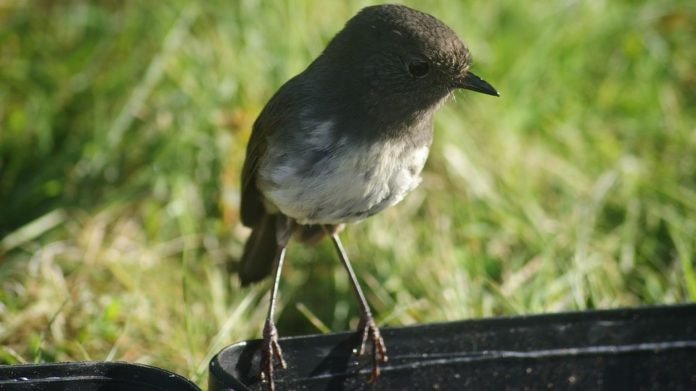A team of international researchers has uncovered evidence that island-living birds have bigger brains than their closest mainland relatives.
The study, published in Nature Communications, also suggests that these brainier birds evolved in response to island life, as opposed to having origins in environments or events that came before their ancestors arrived on the islands.
The ‘natural laboratory’ of an island
Evolution can seem highly unpredictable, as genetics and environmental influences shift and interact, leading species down all sorts of roads that shape their future. While complex, unmasking the ‘how and why’ of how species diverge as they evolve depends on finding predictable trends. Because of their isolated nature, islands are akin to natural laboratories for scientists, each representing a unique environment in which evolution has unfolded.
Islands have well-known selective pressures that result in predictable trends such as flightless birds, as an example. Superior birdbrains for island dwellers has long been suspected by scientists, who can point at the cognitive feats of the tool-using Woodpecker Finch or Hawaiian Crow, but holistic proof was lacking.
For this study, the researchers studied data on 11,554 species of birds including data on brain sizes for 110 island birds and 1,821 mainland birds.
The correlation between brain size and cognitive ability in birds is significant because of the ‘pallium’ area of the brain: “Relatively larger brains are largely driven by the expansion of a region that we refer to as the pallium,” says co-author Andrew Iwaniuk, professor of neuroscience at the University of Lethbridge.
“The pallium is part of the avian brain that you can think of being equivalent to the cortex in the human brain. So this is really the thinking and decision-making part of the nervous system.”
In a crude comparison of average brain size between the two groups, the island birds won out overall, but it was important to next cross-compare individual species with their closest mainland relatives. This would provide researchers with the hard evidence they need to prove that the island environment is specifically what bumped up their brain size.
A diverse array of island subspecies were selected for the more granular comparison, from the traditionally clever crow to the humble pigeon, yet the findings were consistent: whatever relatives were compared, the island counterparts had bigger brains.
Erratic island life demands a higher aptitude
This still leaves an important question: what’s so special about islands? For one, the isolation of islands is a crucial factor. Come rain, hail, or shine, these birds have had to adapt no matter what the environmental circumstances, and for most species, there’s no escape.
The shifts in seasons, climates, and resource availability – which can happen quite rapidly in this environment – would require a cleverer, more innovative breed of bird to overcome these adversities.
Examples of pioneering island birds include New Caledonian crows, who forge tools to access food sources, and the thieving Barbados Bullfinches that snack on sugar packets from cafés.
“The need to adopt new resource opportunities by island colonizers should select for enhanced cognition and larger brains,” wrote co-author Ferran Sayol in an accompanying blog post. “Selection should be particularly strong due to the limits to dispersion, which would prevent individuals from moving to other places when environmental conditions deteriorate.”








































